|
|
|
|
|
|
|
|
Media
Extinct Baby Horse-Its Skin and Hair Intact-Found in the Siberian Permafrost. Every so often, the nearly intact remains of ancient creatures emerge from Siberia's permafrost, or perpetually frozen soils. Last year, for instance, a local resident stumbled upon an extinct cave lion cub that had been trapped-and preserved-in the permafrost for thousands of years. Other finds have included a 9,000 year old bison, a juvenile woolly rhino, and ancient roundworms that were reportedly resurrected by scientists. Now, as the Associated Press reports, researchers have made another remarkable discovery in the Siberian region of Yakutia: an extinct baby horse, so well preserved that its skin, hair, tail and hooves have persisted to the present day. Smithsonian
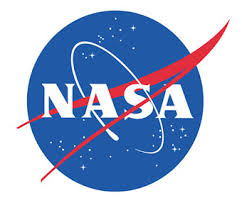 NASA Discovers Bubbling Lakes in the Remote Arctic- A Sign of Global Warming. NASA Discovers Bubbling Lakes in the Remote Arctic- A Sign of Global Warming. NASA has released videos of bubbling lakes in the remote Arctic tundra, where warming continues to release greenhouse gases into the atmosphere at unprecedented rates. The international research team, funded by NASA as part of their Arctic-Boreal Vulnerability Experiment (ABoVE), recently published their results in Nature Communications. What they found are bubbling lakes as greenhouse gases are released from the previously frozen ground, leading to increased greenhouse gas emissions and a warming positive feedback. Forbes
Ocean Minds Tackle Arctic Marine Traffic Bump. NOAA meetings in Juneau focus on expanding lacking marine infrastructure in the north. Sea ice in the Arctic is melting earlier in the spring and forming later in the fall, allowing ships more time to navigate ice-free waterways. But the charts and communication meant to keep these vessels safe isn't yet up to speed with an expected increase in vessel traffic, experts said Thursday at the Juneau meeting of the National Oceanic and Atmospheric Administration's Hydrographic Services Review Panel. Juneau Empire
More and Bigger Sinkholes in Yamal Tundra. The formations believed to be created by eruption of natural gas from the ground are of growing concern both to researchers and the oil and gas industry in the far Arctic peninsulas of Yamal and Gydan. One of the biggest formation is located only about four kilometers from a gas pipeline leading from the huge Bovanenkovo field, a project operated by Gazprom. This formation is now growing and has reached a diameter of more than 60 meter and a depth of about 200 meters. The Barents Observer
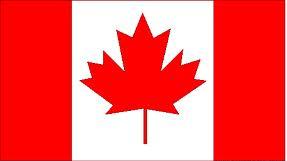 Canadian Coast Guard Sends Seven Vessels to Arctic to Conduct Operations. Canadian Coast Guard Sends Seven Vessels to Arctic to Conduct Operations. The coast guard's operational season in the Arctic runs into November. The latest ship to be sent, the CCGS Terry Fox, left Montreal on August 27 to conduct icebreaking assistance in the Northwest Passage. The CCGS Amundsen is another coast guard asset in the Arctic that is on a dedicated Arctic Net science program, the coast guard noted in a news release. As part of her maiden voyage to Arctic waters, the CCGS Samuel Risley completed Operation Pacer Goose, which is the annual resupply mission for the Thule US Air Force base in Greenland. Six other coast guard icebreakers are supporting operational and program commitments, such as providing safe escorts of ships through ice-covered waters, according to the coast guard. Ottawa Citizen
|
|
Future Events
UArctic meetings and  a science conference into one single gathering, including business meetings of the Council of UArctic, Rectors' Forum, Student Forum, and Thematic Networks & UArctic Institutes Leadership Team. The Congress is an integral part of the Finland's Arctic Council chairmanship program, and open to the public. The event will highlight the themes and priorities of the Finnish chairmanship, including the goals of the United Nations' 2030 Agenda for Sustainable Development, and the Paris Agreement under the UN Framework Convention on Climate Change. a science conference into one single gathering, including business meetings of the Council of UArctic, Rectors' Forum, Student Forum, and Thematic Networks & UArctic Institutes Leadership Team. The Congress is an integral part of the Finland's Arctic Council chairmanship program, and open to the public. The event will highlight the themes and priorities of the Finnish chairmanship, including the goals of the United Nations' 2030 Agenda for Sustainable Development, and the Paris Agreement under the UN Framework Convention on Climate Change.
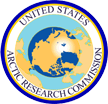 meeting will be held in the NW Borough Assembly Chambers, 163 Lagoon Street, Kotzebue, AK, from 8:30 am to 4:00 pm. Kotzebue is the home town of USARC Commissioner Kasaŋnaaluk Marie N. Greene. After a community discussion on research needs, there will be speakers in sessions on the topics of "health and community wellness," "infrastructure and adaptation," and "local science presentations." The meeting will not be webcast. The agenda for the meeting is available here.
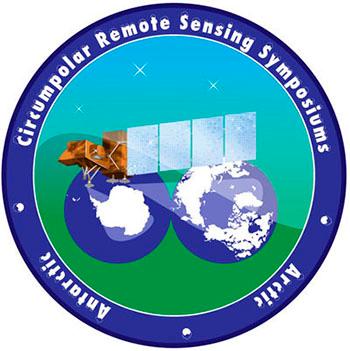
** New this week ** Arctic Ambitions, September 11-12, 2018 (Anchorage, Alaska USA). WTC Anchorage launched the Arctic Ambitions Conference in 2011 in response to growing interest by Alaskan companies, and companies from around the world, in opportunities now, and in the future, for commercial development in the Arctic. At Arctic Ambitions VII, WTC Anchorage will outline its concept for positioning Alaska as an Arctic center for international business. This year's event will feature two special panels: Asia in the Arctic and Alaskan Native Corporations in the Arctic.
 North American Arctic Maritime and Environmental Security Workshop, September 18-20, 2018 (Anchorage, Alaska USA). North American Arctic Maritime and Environmental Security Workshop, September 18-20, 2018 (Anchorage, Alaska USA). The Arctic Domain Awareness Center at the University of Alaska and Trent University, Peterborough Ontario, jointly welcome participants to the North American Arctic Maritime and Environmental Security Workshop, University of Alaska Anchorage, Gorsuch Commons Center. The purpose of the event is to gather Arctic minded experts from government, operators, academics and industry principally from Canada and the U.S. to collaboratively assess security and provide solutions focused on the North American Arctic maritime region, including environmental and human security. The workshop will include plenary panels and breakout discussions to facilitate assessment and identify actions to mitigate risk and improve North American Arctic Maritime and Environmental Security. The "so what" of this workshop, is to build on prior discussions and assessments (much of which is contained in a preparatory Literature Review), and create a framework of actions that policy and decision makers can leverage. For more information, email here.
September NWS Alaska Climate Outlook Briefing, September 21, 2018 (Fairbanks, Alaska USA and via webinar). The tools and techniques for making monthly and season scale climate forecasts are rapidly changing, with the potential to provide useful forecasts at the month and longer range. We will review recent climate conditions around Alaska, review some forecast tools and finish up the Climate Prediction Center's forecast for October and the early winter season. This event is part of the National Oceanic and Atmospheric Administration Science Seminar Series.
Scientific Exploration of the Arctic and North Pacific (SEA-NorP), September 25-27, 2018 (Mt. Hood, Oregon USA). This workshop will include discussion of hypotheses that can be tested by scientific drilling in the region, the technology necessary to achieve those goals, ideal sites for drilling based on existing data, and where additional site survey data is needed. The goal of the workshop organizers is that multiple proposals will be initiated at the workshop, both for full cruise legs and for shorter, targeted expeditions around the following themes: ocean gateways, geohazards, volatile cycling, ice histories at transition zones, biosphere and climate.
The second Arctic Biodiversity Congress is hosted by the Conservation of Arctic Flora and Fauna (CAFF), the biodiversity working group of the Arctic Council, and the Ministry of the Environment, Finland. The second Arctic Biodiversity Congress will build on the success of the first Congress, held in 2014 in Trondheim, Norway, and will bring together scientists, policymakers government officials, Indigenous representatives, Traditional Knowledge holders, industry, non-governmental organizations, and others to promote the conservation and sustainable use of Arctic biodiversity.
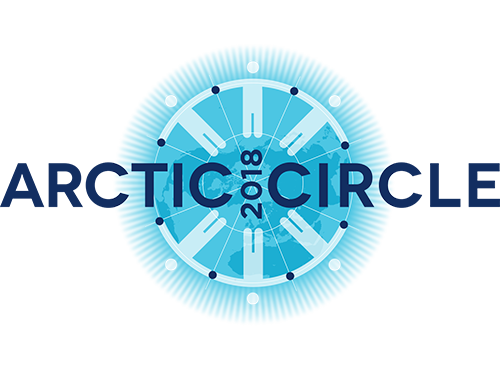 Arctic Circle Assembly, October 2018 (Reykjavik, Iceland). The annual Arctic Circle Assembly is the largest annual international gathering on the Arctic, attended by more than 2000 participants from 60 countries. It is attended by heads of states and governments, ministers, members of parliaments, officials, experts, scientists, entrepreneurs, business leaders, indigenous representatives, environmentalists, students, activists and others from the growing international community of partners and participants interested in the future of the Arctic. Arctic Circle Assembly, October 2018 (Reykjavik, Iceland). The annual Arctic Circle Assembly is the largest annual international gathering on the Arctic, attended by more than 2000 participants from 60 countries. It is attended by heads of states and governments, ministers, members of parliaments, officials, experts, scientists, entrepreneurs, business leaders, indigenous representatives, environmentalists, students, activists and others from the growing international community of partners and participants interested in the future of the Arctic.
Arctic Science Forum Associated with the 2nd Arctic Science Ministerial, October 25, 2018 (Berlin, Germany and via webcast). How vulnerable and how resilient are nature and the people of the Arctic region? How well do we understand the regional and global dynamics which are driving change in the Arctic? What impact will change in the Arctic have on us? These and other questions are the focus of this two-day conference. It will take interdisciplinary research in the Arctic to gain an understanding of past and future processes - a complex and cost-intensive venture. This makes an international network of Arctic research so important for delivering better results. Cooperation in research, the exchange of data, collaborative observation and monitoring schemes - international cooperation is imperative in research on the Arctic.
Only the Science Forum, on October 25th, will be webcast. The Arctic Ministerial, on October 26th, will NOT be webcast.
Maritime & Arctic Security & Safety Conference (MASS18) "Arctic Technology" November 15-16, 2018 (Newfoundland & Labrador Canada). Now in its sixth year, MASS has gained an international reputation as a must-attend event to gain a wide perspective on challenges, opportunities and policies related to the Arctic and North Atlantic maritime environments. The aim of this Government of Canada and the Government of Newfoundland and Labrador supported international conference is to promote stakeholder collaboration, technological innovation, harsh environment research & development, and world-class education efforts that are contributing to both Maritime and Arctic issues. This two day conference will draw a diverse group of speakers and attendees representing government, military, Canadian and U.S. Coast Guard, industry, academic leaders, Northern Leaders, research and other key stakeholders. We hope you can join us to be a part of this important dialogue
American Geophysical Union Fall meeting, December 10-14, 2018 (Washington, DC USA). The AGU 2018 Fall Meeting will mark another dynamic year of discovery in Earth and space science, serve as the advent of AGU's Centennial year, and provide a special opportunity to share our science with world  leaders in Washington, D.C. As the largest Earth and space science gathering in the world, the Fall Meeting places you in the center of a global community of scientists drawn from myriad fields of study whose work protects the health and welfare of people worldwide, spurs innovation, and informs decisions that are critical to the sustainability of the Earth.
ArcticNet: Annual Scientific Meeting 2018, December 10-14, 2018 (Ottawa, ON Canada). Canada's North is experiencing unprecedented change in its sea and terrestrial ice, permafrost and ecosystems under the triple pressures of climate change, industrialization and modernization. The impacts of these pressures can be seen on food and energy security, shipping, sovereignty, northern community health and well-being, and sustainable development and resource exploitation. All these issues have brought the North to the forefront of national and international agendas. Building on the success of its previous Annual Scientific Meetings and International Arctic Change Conferences, the Arctic Network of Centers of Excellence announces the 14th ArcticNet Annual Scientific Meeting.
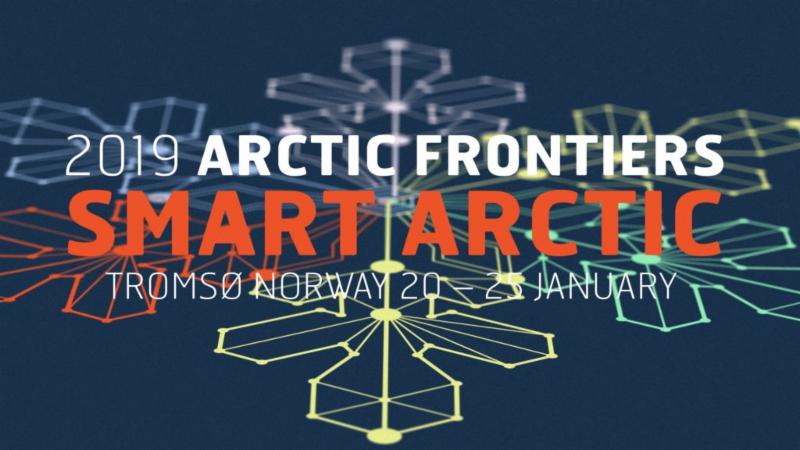 is a global scientific conference on economic, societal, and environmental sustainable growth. This year's theme will be "Smart Arctic," with a pan-arctic emphasis, and an effort to build new partnerships across nations, generations and ethnic groups. Arctic Frontiers provides a forum for dialogue and communication between science, government and industry. The plenary program will have five main sessions: State of the Arctic, Blue Growth, Smart Solutions, Bridging the Gap, and Arctic business prospects. An abstract-driven science program will address Plastics in the Ocean, the Future of Governance and Handling Vulnerability in Arctic Ecosystems, State of the Arctic and A Smart Arctic Future.
 of the AAG includes over 8,500 geographers converging from the U.S., Canada, and nearly 60 other countries in a typical year including geographers, GIS specialists, environmental scientists, and other leaders for the latest in research and applications in geography, sustainability, and GIScience. of the AAG includes over 8,500 geographers converging from the U.S., Canada, and nearly 60 other countries in a typical year including geographers, GIS specialists, environmental scientists, and other leaders for the latest in research and applications in geography, sustainability, and GIScience.
|
|

  
4350 N. Fairfax Drive, Suite 510
Arlington, VA 22203, USA
External links in this publication, and on the USARC's World Wide Web site ( www.arctic.gov) do not constitute endorsement by the US Arctic Research Commission of external Web sites or the information, products or services contained therein. For other than authorized activities, the USARC does not exercise any editorial control over the information you may find at these locations. These links are provided consistent with the stated purpose of this newsletter and the USARC Web site.
|
|
|
|
|
|
|
|
|
 NASA Discovers Bubbling Lakes in the Remote Arctic- A Sign of Global Warming. NASA has released videos of bubbling lakes in the remote Arctic tundra, where warming continues to release greenhouse gases into the atmosphere at unprecedented rates. The international research team, funded by NASA as part of their Arctic-Boreal Vulnerability Experiment (ABoVE), recently published their results in Nature Communications. What they found are bubbling lakes as greenhouse gases are released from the previously frozen ground, leading to increased greenhouse gas emissions and a warming positive feedback. Forbes
NASA Discovers Bubbling Lakes in the Remote Arctic- A Sign of Global Warming. NASA has released videos of bubbling lakes in the remote Arctic tundra, where warming continues to release greenhouse gases into the atmosphere at unprecedented rates. The international research team, funded by NASA as part of their Arctic-Boreal Vulnerability Experiment (ABoVE), recently published their results in Nature Communications. What they found are bubbling lakes as greenhouse gases are released from the previously frozen ground, leading to increased greenhouse gas emissions and a warming positive feedback. Forbes Canadian Coast Guard Sends Seven Vessels to Arctic to Conduct Operations. The coast guard's operational season in the Arctic runs into November. The latest ship to be sent, the CCGS Terry Fox, left Montreal on August 27 to conduct icebreaking assistance in the Northwest Passage. The CCGS Amundsen is another coast guard asset in the Arctic that is on a dedicated Arctic Net science program, the coast guard noted in a news release. As part of her maiden voyage to Arctic waters, the CCGS Samuel Risley completed Operation Pacer Goose, which is the annual resupply mission for the Thule US Air Force base in Greenland. Six other coast guard icebreakers are supporting operational and program commitments, such as providing safe escorts of ships through ice-covered waters, according to the coast guard. Ottawa Citizen
Canadian Coast Guard Sends Seven Vessels to Arctic to Conduct Operations. The coast guard's operational season in the Arctic runs into November. The latest ship to be sent, the CCGS Terry Fox, left Montreal on August 27 to conduct icebreaking assistance in the Northwest Passage. The CCGS Amundsen is another coast guard asset in the Arctic that is on a dedicated Arctic Net science program, the coast guard noted in a news release. As part of her maiden voyage to Arctic waters, the CCGS Samuel Risley completed Operation Pacer Goose, which is the annual resupply mission for the Thule US Air Force base in Greenland. Six other coast guard icebreakers are supporting operational and program commitments, such as providing safe escorts of ships through ice-covered waters, according to the coast guard. Ottawa Citizen
 a science conference into one single gathering, including business meetings of the Council of UArctic, Rectors' Forum, Student Forum, and Thematic Networks & UArctic Institutes Leadership Team. The Congress is an integral part of the Finland's Arctic Council chairmanship program, and open to the public. The event will highlight the themes and priorities of the Finnish chairmanship, including the goals of the United Nations' 2030 Agenda for Sustainable Development, and the Paris Agreement under the UN Framework Convention on Climate Change.
a science conference into one single gathering, including business meetings of the Council of UArctic, Rectors' Forum, Student Forum, and Thematic Networks & UArctic Institutes Leadership Team. The Congress is an integral part of the Finland's Arctic Council chairmanship program, and open to the public. The event will highlight the themes and priorities of the Finnish chairmanship, including the goals of the United Nations' 2030 Agenda for Sustainable Development, and the Paris Agreement under the UN Framework Convention on Climate Change. meeting will be held in the NW Borough Assembly Chambers, 163 Lagoon Street, Kotzebue, AK, from 8:30 am to 4:00 pm. Kotzebue is the home town of USARC Commissioner
meeting will be held in the NW Borough Assembly Chambers, 163 Lagoon Street, Kotzebue, AK, from 8:30 am to 4:00 pm. Kotzebue is the home town of USARC Commissioner 


